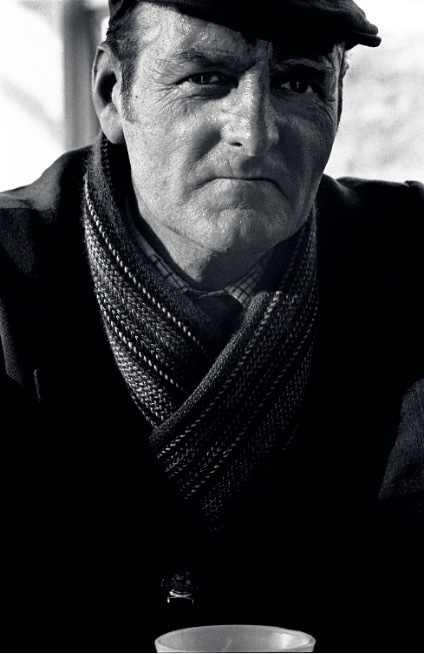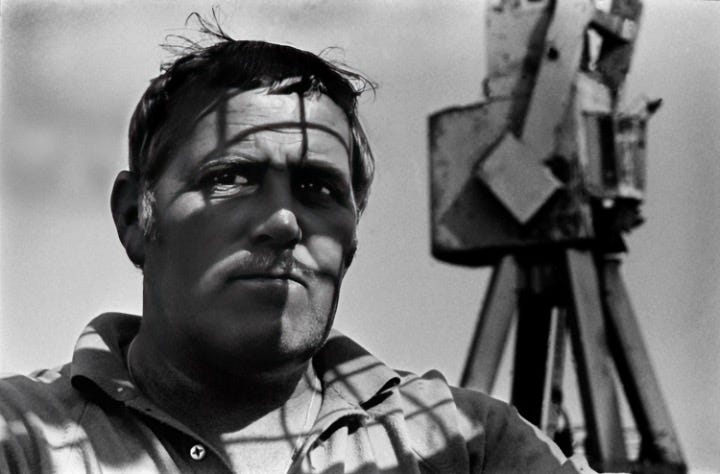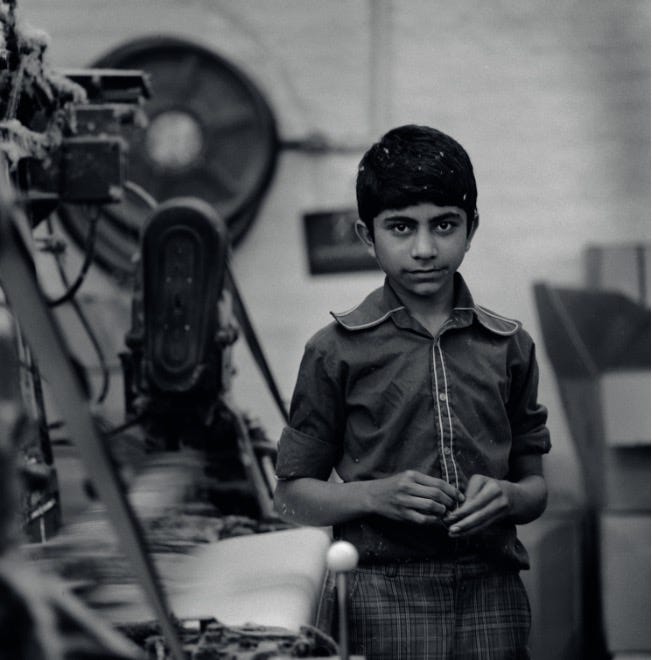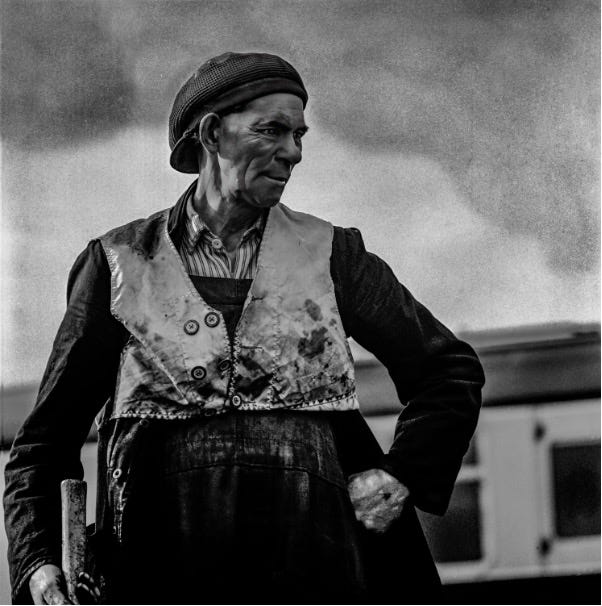When I was again in hospital, I watched an elderly man, perhaps in his early 60’s, enter the ward with his mop and pail. He moved slowly as though he was in pain. Out and back, out and back with his mop. Never looking up or around as if the outer world was too much of an assault.
When he was close to me I asked him how long he’d been working in the NHS. Somewhat startled that a patient recognised him as a human being, as an individual,
he looked up but not directly at me and quietly said, “I’m a man.”
Then, in that suspended moment in which I accounted for my surprised response to his three words, slowly he brought his eyes down, but not on me, and continued, “Three years now.”
“Do you mind me asking what you did before?”
Without changing his point of focus, he said, “In the military, RAF, 16 years.” Long pause. “After that I was a Postmaster.” Then he looked at me, straight into my eyes and perhaps through me. He seemed oh so hurt.
I whispered, “Horizon*?” He nodded his head yes. “Got me for thousands but the worst part was the pressure they put on you.” He paused to gather himself, perhaps not knowing if he should continue or not.
I asked, “Did you see the TV series**?
He nodded yes. “The worst thing was that the PO used their supposed experts as bounty hunters. Did you know for each of us they dragged in, they received a bonus, so it wasn’t the truth they wanted, it was the money.”
I asked, “What I still don’t understand is where’d all that money go?”
He came alive for a moment. “That’s it, who’s got the money? Where is it?
Probably in the pockets of the PO’s board members.”
He nodded to himself as well as to me, and murmured, “gotta get on with it,” and shook the mop handle.
We know this is a national disgrace. We know it is a reflection of what the dignity and self-control the pre-Thatcher ruling class manifested in relation to some thin scab of morality and sense of fairness that now pretends to be our ruler’s moral compass.
But do we not believe that he is a part of us and we of him?
Or is it that we construct a story of a poor working class kid who did badly at school, then joins the military as his only path to a decent life? And the justification goes: what he did, he did for himself, not for the nation, therefore what do the rest of us owe him?
Tragically, most of us unconsciously accept or consciously ignore that the maintenance of our lifestyle and beliefs are worth other’s suffering. This implies a refusal to accept our common story that whispers about our shared humanity with all others, including those we allow to be condemned to poverty and violence. If nothing else, this hypocrisy is enough to undermine the moral fibre of our civilization which is exactly what the pseudo strongmen and their fascist buddies do.
This is a long story, part of what I have written about in earlier essays. In essence it is down to the right wing and their rich masters deciding around 1970 that they could begin, step-by-step to roll back the welfare state, manipulate laws to favour their tax status while creating a financialized world in which, through tax policy, interest rates and mortgages, they could increase their profits. By unnecessarily increasing prices while supressing wages they were able to further engorge themselves with even greater wealth. All of this in the face of people only wanting decent housing, decent schools, decent medical care, affordable food as a human right.
Related to the above and carrying on my discussion about portraits from last week’s images of artists, below are images of workers: working class people, hounded by hard labour, long hours, poor conditions, lack of respect, oppressed by the meaningless nature of their work, by their relative poverty and by their broken dreams.
Note the eye contact with the camera, that is to say, with me. This was always an attempt on my part to give people who are victims of history, a dignified presence within history.
In my life of photographing, it is not often that I could help strangers to look at the camera with such clarity, self-possession and undefended honesty. For me, it was an extremely modest way of honouring them as individuals.


In this mid 1970’s period, some people seemed contented enough to pause and let me take a picture but mostly people did not want to have a print nor give their names, It was as if my paying attention to them was some sort of honour, although I have to say, I always felt honoured by them.
NOTES:
*Horizon is a computer accounts system commissioned by the English Post Office to run all sub Post Office’s financial books, created by Fujitsu. It turned out to be corruptible from the Fujitsu HQ in England. Over 900 sub post officers were eventually extorted of money they supposedly owed, with many given further penalties and even prison sentences. The worst of it is that people in the higher offices of both corporations knew what was happening and turned away. No one knows to whom the money went.
**Over the years this went on there have been various reports on the inside pages of newspapers and the occasional news item on TV, but a powerful 4 episode drama was made and shown a few weeks earlier that captured the attention of the country and appalled huge numbers of people who demanded of their MPs that something be done immediately. Given the gradualness of English history the promises have come thick and fast but the amends will only trickle down, leaving these people’s lives in poverty and ruin.










I am glad you related to the cleaner and got - at least part - of his story… these stories need highlighting
Robert, first of all, I hope you are feeling better and recovering quickly. These are terrific photographs. Have you thought of an exhibition or a book? They reminded me of some of the photos taken during the 1929-1935 period in America, and/of the book we had on our bookshelf The Family of Man.